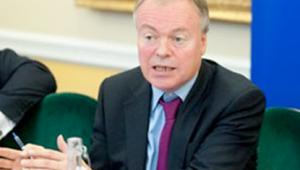21 May 1999
Voter turnout in local elections – currently a derisory 29% – competition between parties, and political accountability would all increase if powerful US-style city bosses were forced on cities such as Birmingham, Leeds, Manchester and Bristol, claimed the New Local Government Network.
Using the findings of a nationwide poll it published on May 19, the NLGN claimed 64% of people 'would welcome the opportunity' to vote for a mayor and 40% said they would be 'more likely' to vote at elections if they had a mayor.
This contrasts with the widespread resistance among councils. A further poll, to be published later this month by the Local Government Association, will show that less than 1% of all councils want to have a mayor system and instead will overwhelmingly – 83% – choose a Cabinet-style system only.
Professor Gerry Stoker, chair of the NLGN, said this was unsurprising as 'turkeys won't vote for Christmas'. He added: 'There is a gap between what the public appears to think and what the councils are prepared to consider.'
Mayors are favoured by the prime minister and local government minister Hilary Armstrong. Deputy Prime Minister John Prescott is thought to be less enthusiastic. He is said to favour giving more power to the regions, not councils. But a government source this week firmly denied there was a ministerial split.
If the government bill introducing new political structures is included in this year's Queen's Speech it could become law by July 2000. Only three councils, Lewisham, Liverpool and Watford, have so far shown any interest in having a mayor.
Professor Stoker added if the government backed away from imposing mayors it should lower the 'trigger referendum' rate – the minimum number of people needed in any electorate to force a vote on mayors – from 5% to 1%. He also said proportional representation would help destroy 'one-party states' and encourage voter turnout.
The call for imposing mayors prompted an unusually angry response from the LGA, which believes councils should be free to choose their own political system. Chief executive Brian Briscoe said the NLGN poll was 'naive and simplistic'. 'This is a complex issue and not one to be dealt with in this crass and sloganeering way,' he added.
PFmay1999


















